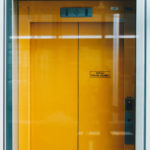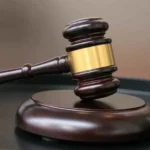May 9, 2018 by

When an injury occurs on the premises of a business, it can be difficult to determine who is liable for the accident. When there are multiple entities involved, including insurers, indemnity often comes up between the parties. Insurance companies often indemnify their insureds, meaning that they handle the suit on behalf of the insured. Sometimes two companies can agree between themselves that one will indemnify the other in certain ... [Read More]
May 2, 2018 by

The Fifth District Court of Appeal reached an interesting conclusion in Case No. 5D16-2794 in a Florida wrongful death case involving a corporate pizza chain, its franchisee, and a widow who was not married to the decedent at the time of the accident. The decedent was first injured in a serious car accident after he swerved into the median to avoid another car that pulled in front of him. ... [Read More]
Apr 25, 2018 by

In a recent Florida brain injury case, a teenager suffered permanent brain damage after her treatment for hydrocephalus at a Medical Center and Children’s Hospital. The teen had been diagnosed with hydrocephalus at 12 years of age, caused by a tumor creating a build-up of excess cerebral spinal fluid in the brain. To assist with the blockage, she underwent surgery, which went well. Another procedure was scheduled two years later ... [Read More]
Apr 18, 2018 by

Section 627.727, Florida statutes delineates the requirements for (UM) uninsured motorist coverage - specifically how an insurer must document the rejection of coverage. The insured can select UM coverage lower than the bodily injury liability limits of the policy or reject coverage entirely, but she or he must do so through writing. In a recent Florida car accident case, No. 4D17-332, the court looked at whether an insurance company failed ... [Read More]
Apr 11, 2018 by

Businesses are expected to exercise reasonable care over their premises, providing inspection, maintenance, repairs, or warnings of any foreign object or substance. If the business fails to provide this to its customers, and this failure results in injuries, the property owner or manager can be held liable for the injuries and expenses incurred as a result. A Fourth District Court of Appeal case reviews the type of proof needed in ... [Read More]
Apr 4, 2018 by

The Florida District Court of Appeal recently issued a decision in an appeal stemming from a final arbitration in a Florida wrongful death medical malpractice case. The arbitration panel awarded economic damages for loss of companionship and guidance to the husband and child of a deceased woman. They also awarded the maximum statutory limitation for the non-economic damages of lost support. The defendant hospital appealed the damages in favor of ... [Read More]
Mar 28, 2018 by

A successful personal injury trial for a plaintiff primarily hinges on whether or not the fact finder believes it is more likely than not the defendant(s) caused the resulting injury due to negligent behavior that falls short of a legal duty. While a jury is given great discretion in the type of facts they find to be true and supportive of a claim or defense, the trial court can make ... [Read More]
Mar 21, 2018 by

Civil courts have the power to sanction parties if actions taken or not taken during a litigation period are egregious to the process. A recent Florida uninsured motorist accident appeal heard in Florida’s Fifth District Court dealt with a sanction issued by the trial court to the party. The appellate court felt dismissing the action with prejudice was too harsh a penalty for the concerning behavior. The plaintiff was injured ... [Read More]
Mar 14, 2018 by

Many Florida car accident cases do not make it to a trial in front of a selected jury. Often, the parties can reach a settlement agreement before a lawsuit is even filed, ideally to the satisfaction of both parties involved. The Fourth District recently reviewed a settlement agreement between an auto insurer and a plaintiff injured in a car accident. The injured person appealed the enforcement of a settlement agreement, ... [Read More]
Mar 7, 2018 by

Florida allows parties to utilize arbitration to bypass the civil court system. If two parties agree through a formal contract, they can use an arbitrator to decide any conflict that arises during the course of their relationship. The decision by an arbitrator would be as binding as if a decision were rendered through the state’s system. This month, the state’s Fifth District Court of Appeal assessed an arbitration agreement at ... [Read More]
